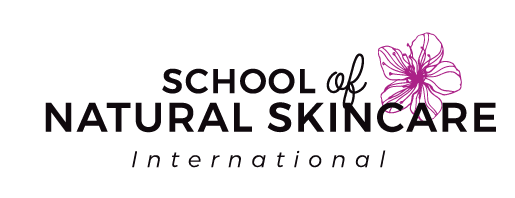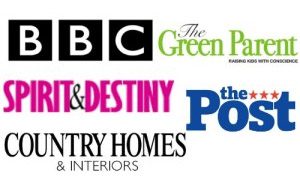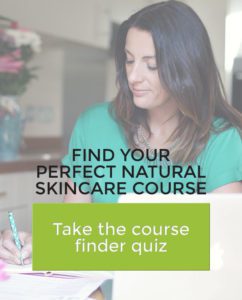From high-end product lines to brands showing up on drugstore shelves, clean skincare is a trend that has taken the world of skincare by storm. But what does this term actually mean? What about it makes the products “clean?” And does this mean that other products are dirty or toxic?
In this article, we hope to set the record straight on clean skincare, hopefully provide some clarity on what makes something “clean” or not, and show you how you can implement this trend in your own skincare routine, or in your own skincare formulations!
What’s Clean About Clean Skincare?
On the surface, the term “Clean Skincare” has a wonderful appeal to it. Who doesn’t want their skincare, and their skin, to be clean and free of toxins and impurities that might irritate it?
But it also carries with it the implication that some skincare products are clean while others are ‘dirty’ or toxic—all without being totally clear about what ingredients make it clean or not.
At its essence clean skincare is skincare free from toxins and skincare that offers a level of transparency about what ingredients it does and does not contain. Some clean skincare brands achieve this with short ingredient lists, that are easy for consumers to understand.
The confusing thing is, not every brand can agree on what ingredients are clean. Whilst most natural and organic beauty lovers would prefer not to see SLS, PEGs and parabens in ‘clean’ beauty products, there is no one standard answer—similar to the definition of what “natural” beauty or “natural” skincare products are. There is no one certifying body which tests and verifies that a product is clean by certain standards; it’s all left up to that company’s individual definition.
So, to answer that question, you’ve got to dig a little deeper into the ethos of the company you’re purchasing from.
For example, skincare brand Drunk Elephant states that they work to avoid what they call the “suspicious six1.” That includes:
“silicones, essential oils, chemical screens, SLS, drying alcohols, and fragrance/dyes.”
Other brands, such as Erbaviva, Alder New York, and Rising Springs2 avoid ingredients such as:
- Polysorbate-60
- Ceteareth-20
- Laureth-7
- Palm Oil
- Hydroquinone
- Petroleum and Petroleum byproducts
- Acrylate
- Silicones
- …and even water which has not been filtered to a certain brand’s standard.
There are very good reasons to avoid many of these ingredients in your formulations, but it should be clear that the term ‘clean’ has a different meaning to each different company, and therefore, makes the issue a bit more nebulous when you’re searching for products on the shelf.
So Why Is Clean Skincare A Thing?
As consumers become more aware of things that may be toxic or harmful to their health, clean skincare products aim to offer reassurance that they don’t use these potentially harmful ingredients.
The growth of clean beauty also echoes the growth in clean eating or veganism. Clean eating has been growing in popularity which to many people means eating a plant-based, vegan diet. As Analyst Andrew McDougall of Mintel notes in his trend report3, the move towards clean eating has contributed to the rise of clean beauty “as consumers want to align all aspects of their lifestyles.”
Even though each company has a different definition of what clean skincare means, to us it’s clear that the impulse behind the trend is a good thing: People are becoming more aware of the ingredients that go into their products, and consumers are searching the shelves for products that will help them feel like they are taking control of their health and wellbeing and are living in line with their values.
They aren’t content just buying something and putting it on their faces or bodies and calling it a day; they want the skincare items they purchase to make a difference, both for themselves as well as for the planet.
Clean beauty is more than a trend, it’s a lifestyle
Even color cosmetics are getting in on the trend, Mintel report that clean colour cosmetics launches are one of the trends driving growth in the UK beauty market4.
Jane Henderson, Global President – Beauty and Personal Care Division at Mintel says,
“The clean beauty movement started out in skincare and is now quickly moving into colour cosmetics, with the UK leading the way. Consumers are holistically looking to clean up their lifestyles, so clean makeup will become increasingly important in the coming years. Clean beauty is more than a trend, it’s a lifestyle…5”
How Do I Find The Skincare That’s Best For Me?
If using clean skincare appeals to you, you’ll first need to consider what you consider clean skincare to be! In order to match your standards what would a product contain (and not contain)?
The very best thing you can do as a consumer is empower yourself with knowledge about what ingredients are, what they do, and where they come from. Using something like the Think Dirty app, you can easily check what ingredients are in your products. You can scan your products and see what’s in them, and make choices for yourself.
You can also learn how to read ingredient labels, this guide will get you started.
Formulating your own Clean Skincare
To really control what goes on your skin, you can learn how to formulate your own products and set your own clean skincare standard!
In fact the number one reason students decide to study with us is so that they know exactly what is going into their skincare products.
Our Diploma in Natural Skincare Formulation will set you up with everything you need to know to safely formulate all kinds of natural, green, organic, clean and vegan skincare products. Take a look at the course curriculum and get started today!
Sign up to our free email series: Formulating for the conscious consumer
Join the growing global movement of conscious consumers and learn how to make products that are ethical, sustainable, eco-friendly and innovative as well as in line with the latest trends and developments!
On this training series you’ll learn:
- How to create sustainable skincare products.
- The truth behind common misconceptions. SPOILER ALERT: vegan doesn’t mean natural! Why that matters and what you can do about it.
- The clean skincare trend; what does it actually mean?
- What are waterless skincare products and what are their benefits?
- How a minimalist skincare routine and multipurpose skincare products help people to live more sustainable lifestyles.
Today, consumers, formulators and brands alike are becoming much more aware of environmental and ethical issues. Explore the important issues and discover how to become a conscious formulator creating cosmetics for the conscious consumer!
Love learning about clean skincare? Save this image below on Pinterest so you can be sure to remember!
- https://www.drunkelephant.com/pages/philosophy
- https://www.beautyindependent.com/brand-founders-clean-beauty-forbidden-ingredient-lists/
- https://www.mintel.com/blog/beauty-market-news/how-can-beauty-companies-make-the-most-of-veganisms-rising-popularity
- https://www.mintel.com/press-centre/beauty-and-personal-care/the-trends-driving-growth-in-the-uk-beauty-market
- https://www.mintel.com/press-centre/beauty-and-personal-care/the-trends-driving-growth-in-the-uk-beauty-market

















